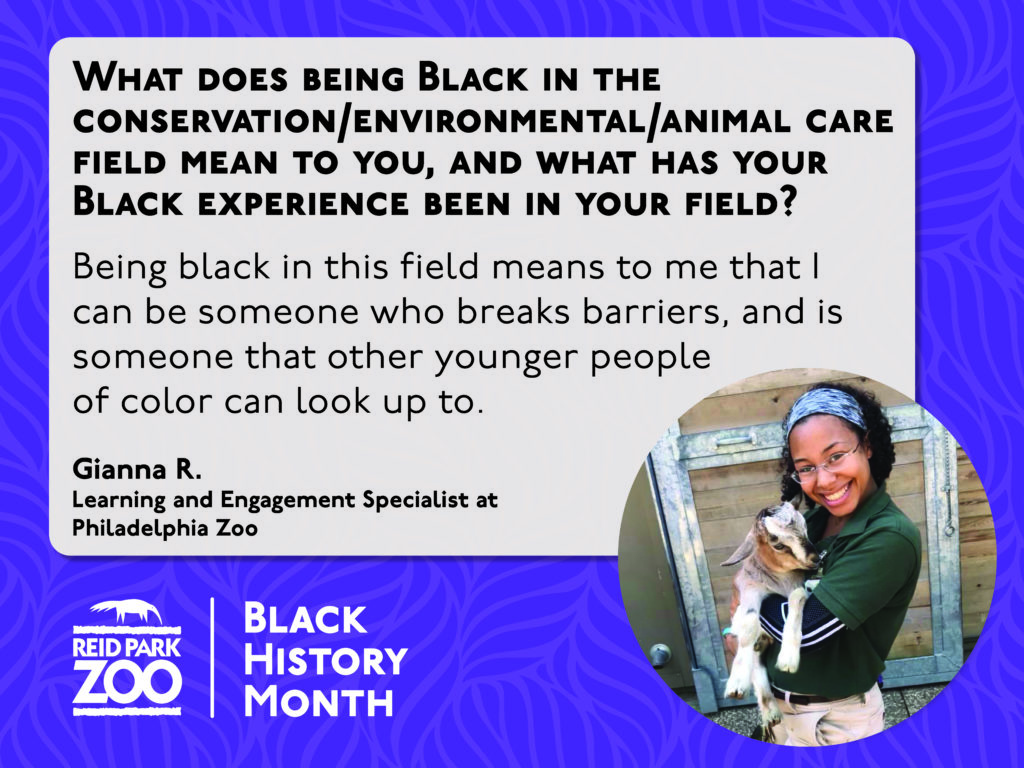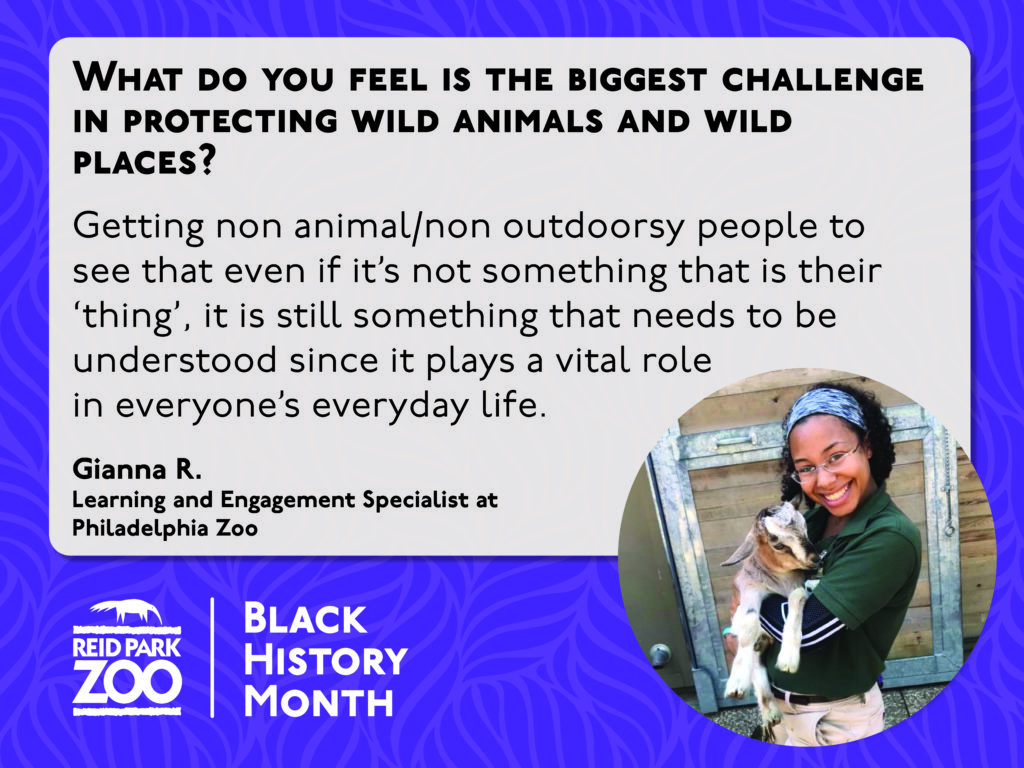Black in Nature: Featuring Gianna Ross

This post is part of “Black in Nature: Tackling Diversity in Conservation,” a Black History Month series giving Black people who work in animal care and conservation a platform to share their experiences and spark the conversation necessary for change. Learn more here.
Gianna Ross is a Learning and Engagement Specialist at Philadelphia Zoo. In her field she feels that she is someone who can break barriers and who younger people of color can look up to. She is proud of her work that includes producing a program that benefits inner-city schools and libraries, but says that her experience has also been a strange journey.
“I have faced tokenism, which is always uncomfortable,” shares Gianna. “Just because I am a black face does not mean I should be flaunted about as the fields “diverse” work staff.”
Gianna thinks that creating a more equitable environment for people of color is key to creating more opportunities in her field. She says that there should be more focus on “making sure that we are not just hiring people based on color and also not just on ability.”
Like others, Gianna emphasizes the importance of creating paid opportunities to enter the conservation field. She also calls for an increase in educational opportunities to help people of color feel more accepted and welcomed.
“We also have to work on making sure that people of color do not just see these fields as subjects or activities that are not for them. Rather it is due to the fact there are not as many faces, or opportunities, it has to be more normalized so people of color feel more able to get into the field and not be judged for that choice.”
Gianna thinks that creating this acceptance is also important to conservation efforts. She hopes that through education and creating opportunities we can ultimately inspire more people to care about the natural world.
“Getting non animal/non outdoorsy people to see that even [Conservation] is not something that is their ‘thing’ caring for it, it is still something that needs to be understood since it plays a vital role in everyone’s everyday life.”

